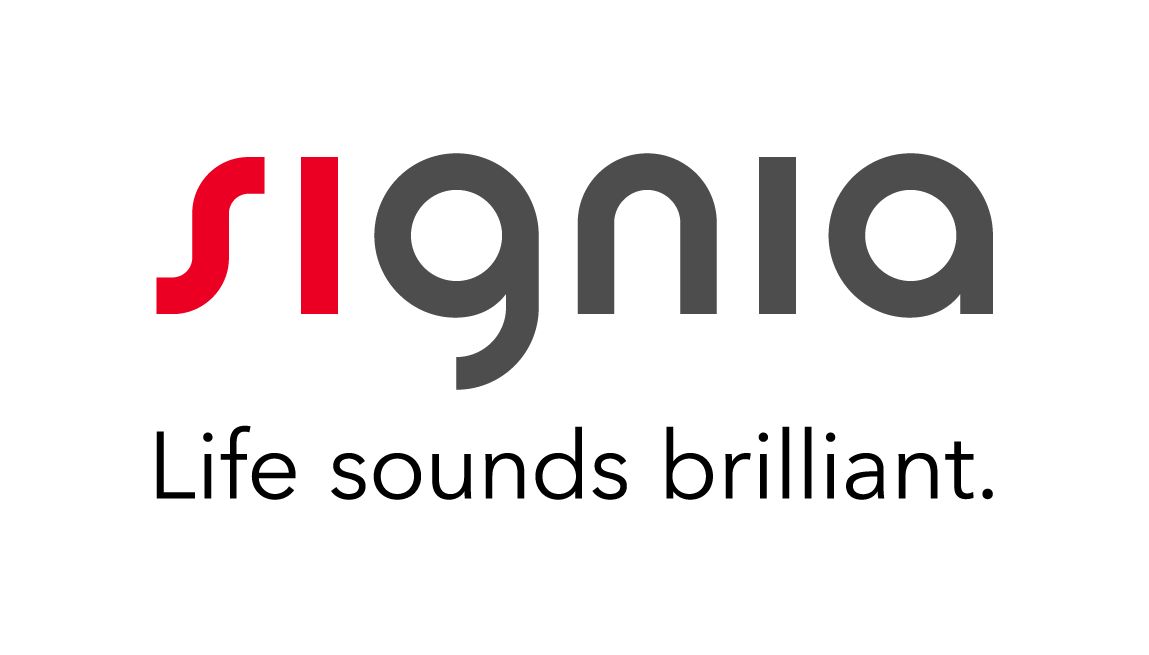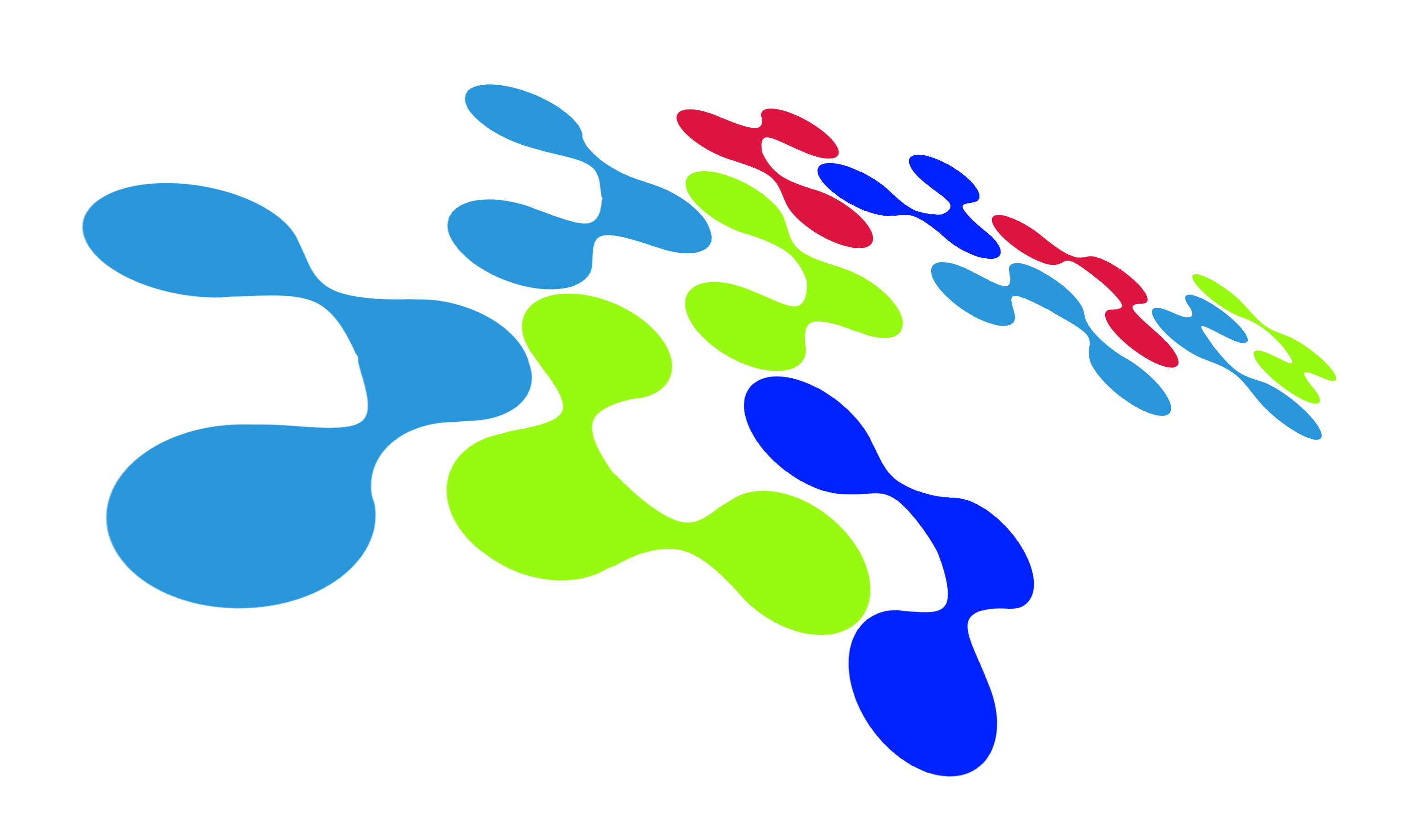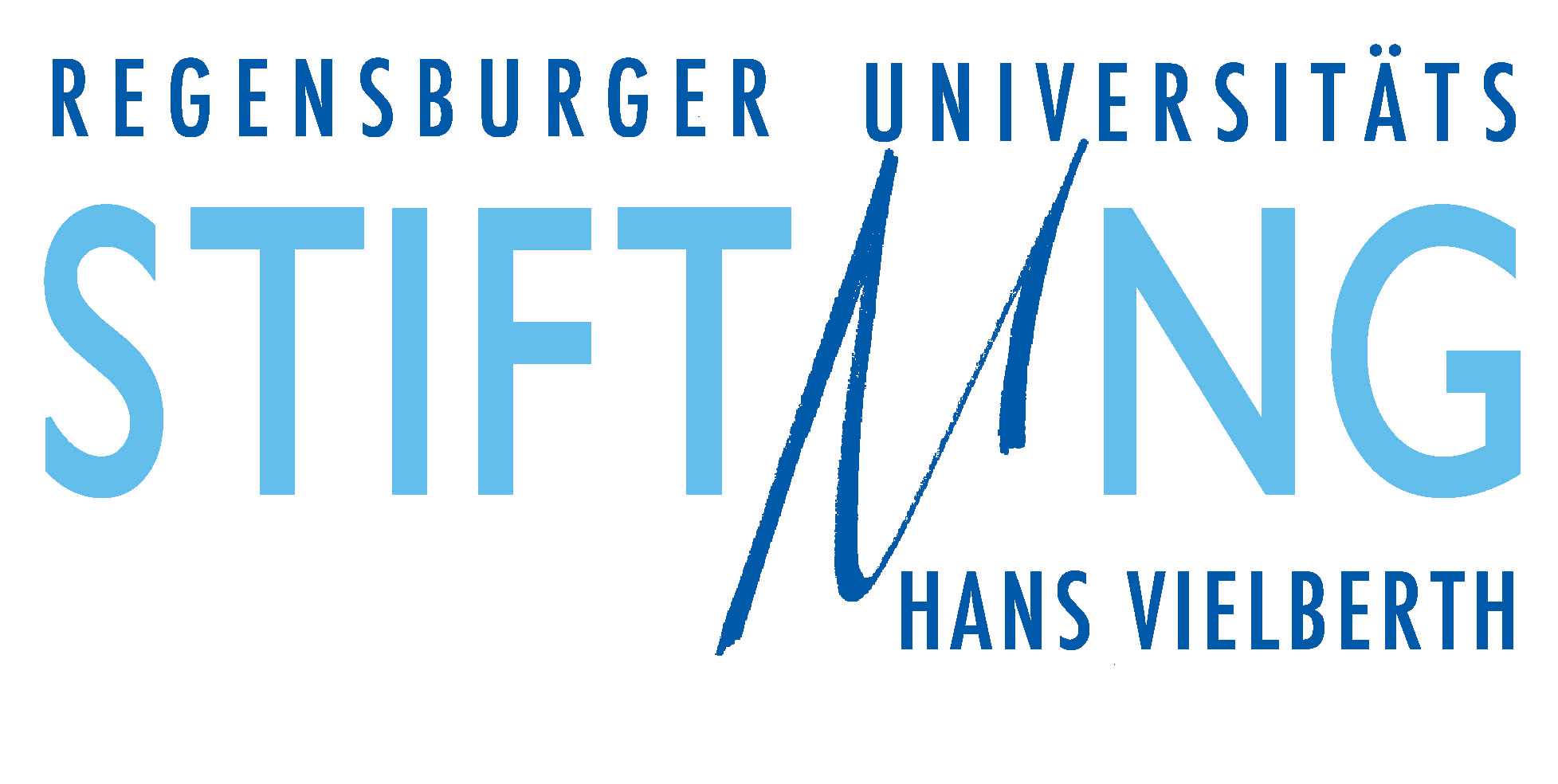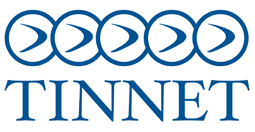Postersession I Wednesday, March 14, 2018
|
TOPIC: EPIDEMIOLOGY |
|
|
156 |
Identifying Non-otologic Risk Factors for Tinnitus: A Systematic Review Jens Debacker, Ann Deklerck, Hannah Keppler, Ingeborg Dhooge |
|
185 |
The Incidence of Tinnitus and Prediction of Tinnitus Harm Inge Stegeman, Diane {A.L.} Smit |
|
217 |
The Swedish Tinnitus Outreach Project - An Update Niklas Karl Edvall, Jonathon P. Whitton, Leslie A. Shinobu, Barbara Canlon, Christopher Cederroth |
|
TOPIC: DIAGNOSTICS |
|
|
223 |
When MRI should be Recommended for Tinnitus Patients? Dong-Hee Lee |
|
TOPIC: Auditive Stimulation, incl Hearing aids & cochlear implants |
|
|
122 |
Chronic Subjective Tinnitus Therapy using Tailor-made Notched Music Training Mingfang Diao, Ruru Tian, Jianjun Sun |
|
154 |
Safe and Effective Tinnitus Treatment by Non-invasive Electric Stimulation: Characterizing the Effect of Electrode Montages, Sites, and Stimulation Parameters on Auditory Perception Fan-Gang Zeng, Phillip Tran, Matthew Richardson, Shuping Sun, Yuchen Xu, Harrison Lin, Hamid Djalilian |
|
213 |
Evaluation of Affective Sounds by Tinnitus Patients Petteri Hyvärinen, Annett Szibor, Jarmo Lehtimäki, Jukka Ylikoski, Antti Mäkitie, Antti A. Aarnisalo |
|
214 |
10 Years Tinnitusproject at THI Josef Pöppel |
|
216 |
Hearing Aid Impact on Chronic Tinnitus Patients measured by Resting State PET-FDG Patricia Simonetti, Laura Vasconcelos, Carla Ono, Fatima Husein, Jeanne Oiticia |
|
234 |
Considering Psychoacoustic Parameters Contribution is Sufficient in Predicting Gain Preference Iman Ghodrati Toostani, Hamid Jalilvand, A.C.B. Delbem, Zahra Vaziri, C.G.C. Barros, M.A. Hyppolito |
|
Topic: Brain Stimulation |
|
|
133 |
Effects of Electrical Stimulation in Tinnitus Patients: A Comparison between t-DCS with Two Different Electrode Placements and HD t-DCS Laure Jacquemin, Annick Gilles, Griet Mertens, Erik Fransen, Julie Moyaert, Paul Van de Heyning |
|
153 |
Event-Related Potentials before and after HD tDCS in Tinnitus Patients Laure Jacquemin, Annick Gilles, Paul Van de Heyning |
|
167 |
The Adjunctive Role of Bifrontal Transcranial Direct Current Stimulation in Patients with Severe Tinnitus Distress Ho Yun Lee |
|
176 |
Conflicting Results: A Literature Review of Parameters utilized by Previous rTMS Research in Tinnitus Stefan Schoisswohl, Winfried Schlee, Berthold Langguth, Martin Schecklmann |
|
TOPIC: Clinical research methodology |
|
|
142 |
A Review of the Current Frameworks for Subtyping Tinnitus – Synthesizing Evidence Towards a Global Consensus Eleni Genitsaridi, Theodore Kypraios, Derek J. Hoare, Deborah A. Hall |
|
164 |
The Client Orientated Scale of Improvement in Tinnitus (COSIT) Grant Donald Searchfield |
|
240 |
Tinnitus and Hearing Survey: A Polish Study of Validity and Reliability Danuta Raj Koziak, Joanna Rajchel, Adam Piłka, Henryk Skarzynski, Piotr H. Skarzynski |
|
241 |
Visual Analogue Scales as a Tool for Assessment of the Tinnitus: Psychometric Evaluation in a Clinical Population Danuta Raj Koziak, Elżbieta Gos, Weronika Świerniak, Lucyna Karpiesz, Iwona Niedziałek, Joanna Rajchel, Henryk Skarzynski, Piotr Skarzynski |
|
303/272 |
HOLOVIEW: Exploring Patient Data in Mixed Reality Burkhard Hoppenstedt, Christian Schneider, Rüdiger Pryss, Jorge Simoes, Patrick Neff, Winfried Schlee, Manfred Reichert |
273 |
Bayesian Inference for treatment outcomes in Tinnitus Jorge Simoes |
|
261 |
Head-to-head comparison of concurrent tinnitus matching methods with a focus on reliability and duration: toward optimized mobile methods in research and intervention Patrick Neff, Ronny Hannemann, Berthold Langguth, Winfried Schlee |
|
256 |
Development of a novel measure to assess avoidance behaviour in Tinnitus patients Jana Devos, Rilana Cima, Martina D'Agostini, Johan W.S. Vlaeyen |
ESIT CORNER |
|
246 |
Tinnitus profiling to guide personalised therapeutic decisions - diagnosis improved with large-scale, longitudinal data Jorge Simoes |
250 |
Harmonizing scientific and clinical Perspectives on Tinnitus Subtypes and Measures: synthesizing Evidence and Experts Opinion Eleni Genitsaridi |
260 |
A coherent european Epidemiological Survey of Tinnitus Roshni Biswas |
248 |
Environmental and Genetic Risk Factors for Tinnitus Natalia Trpchevska |
301/ 268 |
Genetic Contribution to Chronic Tinnitus in Patients with Meniere's Diesease extreme Tinnitus Phenotype Sana Amanat |
254 |
Incentive Management in the Context of Tinnitus Patient Treatments by the Use of Mobile Crowdsensind Technologies Kushal Agrawal |
253 |
Smart mobile Sensing to Support Tinnitus Patients Muntazir Mehdi |
251 |
Tinnitus Pitch Matching by amplitude modulated Sounds José Lopez-Santacruz |
265 |
Alienation, burden and Tinnitus: Unspecified group effect of specialized cognitive behaviour therapy for tinnitus Matheus Pereira da Cruz Gomez Lourenco |
257 |
Developing individual tomographic Neurofeedback Protocols for Tinnitus Treatment Constanze Riha |
302/ 269 |
Improving Cochlear Implantation as a Treatment for chronic Tinnitus Nuwan Liyanage |
263 |
Translational perspectives in tinnitus research: Investigating Influence of top-down processes on tinnitus through alterations in oscillatory activity Marta Partyka |
264 |
Optimal Parameters for non-invasive extra-cochlear electrical Stimulation for subjective Tinnitus Shikha Spencer |
252 |
Developing new strategies of cochlear electric Stimulation to suppress Tinnitus Vinay Parameshwarappa |
249 |
Activate and Fire: Pairing auditory stimulation with repetitive transcranial magnetic stimulation for the treatment of Tinnitus Stefan Schoisswohl |
Poster Session II Thursday, March 15, 2018
|
TOPIC: Imaging |
|
|
107 |
Resting-state Functional Connectivity Density Mapping of Etiology Confirmed Unilateral Pulsatile Tinnitus Patients: Altered Functional Hubs in the Early Stage of Disease Han Lv, Pengfei Zhao, Peng Zhang, Zheng Wang, Heyu Ding, Xuehuan Liu, Yuchen Chen, Shusheng Gong, Zhenchang Wang |
|
109 |
Altered Effective Connectivity Network of the Limbic System in Chronic Tinnitus Yu-Chen Chen, Fan Bo, Xindao Yin |
|
110 |
Aberrant Resting-state Cerebellar-cerebral Functional Connectivity Underlying Chronic Tinnitus Yu-Chen Chen, Fan Bo, Xindao Yin |
|
202 |
Replicability of Resting State Networks in Tinnitus Patients Sara Ann Schmidt, Fatima T. Husain, Benjamin Zimmerman, Rafay Khan, Yihsin Thai, Carlos Esquivel, Charla Levy, Pedro Ramos, Elsa Camou, Paul Sherman |
|
204 |
Morphometric and Functional Changes in the Auditory Brain in Patients with Presbycusis and Tinnitus Oliver Profant, Jaroslav Tintěra, Antonín Škoch, Josef Syka |
304/270 |
Consensus on MRI studies in Tinnitus: A TINNET Delphi Study Pim van Dijk, Peyman Adjamian, Deborah Hall, Emile de Kleine, Audrey Maudoux, Paolo Toffani - TINNET MRI Study Group |
|
TOPIC: Electrophysiology |
|
|
116 |
Empirical Mode Decomposition of the Auditory Brainstem Response as Objective Tool for Tinnitus Assessment Pedro Cobo, María Cuesta, Natalia Rybalko, Jiří Popelář, Pavel Mistrik |
|
117 |
Tinnitus and Normal Hearing: the Role of Central Inhibition Julia Dee Campbell, Connor Bean, Alison LaBrec |
|
148 |
Looking for Differences in the Auditory Brainstem Response of Tinnitus and Non-tinnitus Subjects: Preliminary Results in Humans PEDRO COBO, Maria Cuesta |
|
174 |
Steady-state Auditory Evoked Fields in Normal Subjects and Tinnitus Patients David Chen-Yin Wu, Lieber Po‑Hung Li, Po‑Lei Lee, An‑Suey Shiao |
|
198 |
Event Related Potentials as a Possible Tool to Objectively Measure the Effects of Tinnitus Treatment: Preliminary Data Andréia Aparecida Azevedo, Ricardo Rodrigues Figueiredo, Norma de Oliveira Penido |
|
topic: Behavioral Therapy |
|
|
121 |
The Use of a Small Manual as a Therapeutic Approach to Tinnitus Patients: Some Results Antonio Vasco Oliveira, Rute Meneses, Nuno Trigueiros |
|
168 |
Neuro-Music Therapy Restores Resting-State Network in Tinnitus Patients Heike Argstatter, Christoph M. Krick |
|
224 |
SLS, STS, and SCS : Three Important Dimensions in Tinnitus-Retraining Christian Hellweg, Gabriele Lux-Wellenhof |
|
226 |
Tinnitus Retraining Therapy: a Three Year Follow up Christian Hellweg, Gabriele Lux-Wellenhof |
|
233 |
A Novel Treatment Protocol for the Management of Tinnitus through Multimodality Brain Stimulation Prajakta Patil |
|
Topic: Specific Forms of Tinnitus |
|
|
143 |
Poor Speech Recognition in Idiopathic Sudden Sensorineural Hearing Loss: Implication of the Relationship to Cochlear Migraine Yuan-Chieh Chang, Juen-Haur Hwang, Tien-Chen Liu, Jen-Tsung Lai |
|
155 |
The Connection Between Listening Effort and Quality of Life in Patients with Chronic Tinnitus and Vestibular Disorders Sofie Degeest, Ann Deklerck, Hannah Keppler, Ingeborg Dhooge, Leen Maes |
|
177 |
Clinical and Demographic Description of Tinnitus’s Characteristics on Patients with Endolymphatic Hydrops and Defined Vestibular Migraine at Hospital Británico 2013- 2016 : Retrospective study Ana Carolina Binetti, Melissa Castillo-Bustamante, Andrea Varela, Maria Andreia Ricardo |
|
200 |
Arterial Hypotension in Meniere´s Syndrome Dario Isaac Roitman |
|
247 |
On the “Tinnitus Gestalt”: How the Characteristics of the Tinnitus Phantom Sound Influence the Perceived Tinnitus Distress Jan Bulla, Winfried Schlee, Małgorzata Wrzosek |
|
255 |
An Evaluation of Paediatric Tinnitus Services in the UK Harriet Smith, Kathryn Fackrell, Johanna Barry, Veronica Kennedy Emily Broomhead, Derek Hoare |
|
topic: Hyperacusis / Misophonia |
|
|
135 |
Evaluation of Selective Attention in Patients with Misophonia. Tanit Ganz Sanchez, Fúlvia Eduarda Silva |
|
136 |
Familial Misophonia or Selective Sound Sensitivity Syndrome: Evidence for Autosomal Dominant Inheritance? Tanit Ganz Sanchez, Fulvia Eduarda Silva |
|
228 |
Misophonia and Tinnitus: Similar Underlying Mechanisms Lead to Similar Treatment Strategies Christian Hellweg, Gabriele Lux-Wellenhof |
Poster Session III, Friday, March 16, 2018
|
topic: Pathophysiology |
|
|
100 |
Predictive-brain mechanisms of phantom perception pathology Jeffrey Hullfish, Ian Abenes, Silvia Kovacs, Stefan Sunaert, Dirk De Ridder, Sven Vanneste |
|
102 |
Distress-dependent Temporal Binding of Regions Encoding Disorder-specific and Disorder-general Behavioral Manifestations of Phantom Percepts Anusha Mohan, Dirk De Ridder, Sven Vanneste |
|
131 |
5-HTTLPR Polymorphism affects Sleep Quality and Autonomic Function among Chronic Subjective Tinnitus Patients Jiunn-Liang Wu, Cheng-Yu Lin, Chii-Yuan Huang |
|
145 |
Relationship between Tinnitus and Hearing Loss – Taking Presbycusis as an Example Chun-Ting Chen, Jen-Tsung Lai, Ming-Wei Huang, Juen-Haur Hwang, Shang-Chi Yang |
|
152 |
Tinnitus and REM Sleep Incompatibility – A Pathophysiological Milestone for Unraveling Functional Neural Networks Overlap Tijana Bojić, Zoran Matić, Stefan Mandić-Rajčević, Mirjana Platiša, Aleksandar Kalauzi |
|
165 |
Tinnitus and Stress Asma Ali K. Elarbed, Kathryn Fackrell, David M. Baguley, Derek J. Hoare |
|
169 |
Tinnitus: Hearing, Seeing, Ageing and Sampling - Can they all be Connected? Peter James Hampton |
|
199 |
Neuroinflammatory Responses in Choroid Plexus and Dorsal Cochlear Nuclei after Unilateral Cochlear Damage Paola Perin, Alessandro Venturino, Marta Ceccarini, Alessandra Centineo, Roberto Pizzala |
|
206 |
The Distribution of Cell and Neurotransmitter Markers in the Auditory Cortex of Rats in a Tinnitus Model Hannah Maxwell, Jennifer Schofield, Martine Hamann, Bas Olthof, Charles Large, Mark Cunningham, Sasha Gartside, Adrian Rees |
|
Topic: Pharmacotherapy |
|
|
151 |
Novel in Silico Insights for Potential Treatment of Chronic Tinnitus Distress - Combined Therapy of Glutamate Receptor Antagonists with Creatine Supplementation Tijana Bojić, Vladimir R Perović, Milan Senćanski, Sanja Glišić |
|
197 |
An Open Pilot Study to Evaluate Efficacy and Safety of Olanzapine to Treat Tinnitus Ricardo Rodrigues Figueiredo, Andréia Aparecida Azevedo, Winfried Schlee, Norma de Oliveira Penido |
|
topic: Holistic |
|
|
170 |
Tinnitus Alleviation Therapy for the Practioner and as an Online Course Maria Holl |
|
244 |
Can a Steady State Coherent Biomodulator Relief Tinnitus and Be Safe? A Summary of the Clinical Study Program Performed. Peter Åhnblad |
|
topic: Others |
|
|
163 |
Impact of Oxidative Stress Metabolism and Imbalance of Ca/Mg, Ca/P, K/Na Index Ratios in Perception of Tinnitus and Other Inner Ear Disorders Joaquin Prosper, Alfonso Escobar |
|
205 |
ARC Synaptic Adaptation Therapy a New Treatment for the Tinnitus Adam Pabiś, Artur Bogacz |
|
227 |
A Truly Disruptive Innovation in Tinnitus: The German Tinnitus-Guidelines Christian Hellweg, Gabriele Lux-Wellenhof |
|
212
|
Cross-Validation of two tinnitus Screening Approaches in Mice Inga Kristaponyte, Alex Galazyuk |
271 |
The role of hemorheological and haemostatic changes during Tinnitus of central Origin Lora Shukhuryan, G.I. Tadevosyan, A.J. Shukrian, A.S. Balbabyan, A.G. Martirosyan, K.A. Shirinyan, A.K. Shukuryan |
262 |
Comparison of salicylate-induced and noise-induced tinnitus rat models V. Baudoux, P. Larozze-Chicot, A. Marie, N. Montejo, M. Cardoso, A. Laboulais, Y. Cazals, A. Norena C. Goze-Bac, S. Cosnier-Pucheu, S. Gonzalez-Gonzalez |
|
topic: Psychological Factors |
|
|
127 |
Systematic Evaluation of a Cognitive Model of Tinnitus Distress using Path Analysis Lucy Handscomb, Derek Hoare, Deborah Hall, Gillian Shorter |
|
129 |
The Necessity of Control Groups with Psychiatric Disorders in Tinnitus Research Daniela Ivansic, Julia Gantner, Bianca Besteher, Igor Nenadic, Christo Pantev, Orlando Guntinas-Lichius, Christian Dobel |
|
183 |
Tinnitus Burden and Coping Diane {A.L.} Smit, Inge Stegeman |
|
184 |
Tinnitus and Mental Health Diane {A.L.} Smit, Inge Stegeman |
|
236 |
The Contribution of Tinnitus Negative Valence in Sleep-threat Development Zahrasadat Vazirikangolya, Iman Ghodrati Toostani, Mohammad Nami, A.C.B. Delbem, J.P. Leite |
Overview Postersession for download ![]()
|
TOPIC: EPIDEMIOLOGY |
|
|
156 |
Identifying Non-otologic Risk Factors for Tinnitus: A Systematic Review Jens Debacker, Ann Deklerck, Hannah Keppler, Ingeborg Dhooge |
|
185 |
The Incidence of Tinnitus and Prediction of Tinnitus Harm Inge Stegeman, Diane {A.L.} Smit |
|
217 |
The Swedish Tinnitus Outreach Project - An Update Niklas Karl Edvall, Jonathon P. Whitton, Leslie A. Shinobu, Barbara Canlon, Christopher Cederroth |
|
TOPIC: DIAGNOSTICS |
|
|
223 |
When MRI should be Recommended for Tinnitus Patients? Dong-Hee Lee |
|
TOPIC: Auditive Stimulation, incl Hearing aids & cochlear implants |
|
|
122 |
Chronic Subjective Tinnitus Therapy using Tailor-made Notched Music Training Mingfang Diao, Ruru Tian, Jianjun Sun |
|
154 |
Safe and Effective Tinnitus Treatment by Non-invasive Electric Stimulation: Characterizing the Effect of Electrode Montages, Sites, and Stimulation Parameters on Auditory Perception Fan-Gang Zeng, Phillip Tran, Matthew Richardson, Shuping Sun, Yuchen Xu, Harrison Lin, Hamid Djalilian |
|
213 |
Evaluation of Affective Sounds by Tinnitus Patients Petteri Hyvärinen, Annett Szibor, Jarmo Lehtimäki, Jukka Ylikoski, Antti Mäkitie, Antti A. Aarnisalo |
|
214 |
10 Years Tinnitusproject at THI Josef Pöppel |
|
216 |
Hearing Aid Impact on Chronic Tinnitus Patients measured by Resting State PET-FDG Patricia Simonetti, Laura Vasconcelos, Carla Ono, Fatima Husein, Jeanne Oiticia |
|
234 |
Considering Psychoacoustic Parameters Contribution is Sufficient in Predicting Gain Preference Iman Ghodrati Toostani, Hamid Jalilvand, A.C.B. Delbem, Zahra Vaziri, C.G.C. Barros, M.A. Hyppolito |
|
Topic: Brain Stimulation |
|
|
133 |
Effects of Electrical Stimulation in Tinnitus Patients: A Comparison between t-DCS with Two Different Electrode Placements and HD t-DCS Laure Jacquemin, Annick Gilles, Griet Mertens, Erik Fransen, Julie Moyaert, Paul Van de Heyning |
|
153 |
Event-Related Potentials before and after HD tDCS in Tinnitus Patients Laure Jacquemin, Annick Gilles, Paul Van de Heyning |
|
167 |
The Adjunctive Role of Bifrontal Transcranial Direct Current Stimulation in Patients with Severe Tinnitus Distress Ho Yun Lee |
|
176 |
Conflicting Results: A Literature Review of Parameters utilized by Previous rTMS Research in Tinnitus Stefan Schoisswohl, Winfried Schlee, Berthold Langguth, Martin Schecklmann |
|
TOPIC: Clinical research methodology |
|
|
142 |
A Review of the Current Frameworks for Subtyping Tinnitus – Synthesizing Evidence Towards a Global Consensus Eleni Genitsaridi, Theodore Kypraios, Derek J. Hoare, Deborah A. Hall |
|
164 |
The Client Orientated Scale of Improvement in Tinnitus (COSIT) Grant Donald Searchfield |
|
240 |
Tinnitus and Hearing Survey: A Polish Study of Validity and Reliability Danuta Raj Koziak, Joanna Rajchel, Adam Piłka, Henryk Skarzynski, Piotr H. Skarzynski |
|
241 |
Visual Analogue Scales as a Tool for Assessment of the Tinnitus: Psychometric Evaluation in a Clinical Population Danuta Raj Koziak, Elżbieta Gos, Weronika Świerniak, Lucyna Karpiesz, Iwona Niedziałek, Joanna Rajchel, Henryk Skarzynski, Piotr Skarzynski |
Wednesday, March 14
|
08:00 – 09:00 |
Welcome Desk and Registration |
||
|
09:00 – 10:00 |
Opening Ceremony Prof. Dr. Udo Hebel, President University of Regensburg |
||
|
10:00 – 10:30 |
KEYNOTE I Prof. Dr. Tobias Kleinjung Can Cochlear Implants be a Cure for Tinnitus? Chair: Prof. Dr. Goeran Hajak |
||
|
10:30 – 11:00 |
COFFEE BREAK |
||
|
11:00 – 12:30 |
Session I New Approaches in Neuromodulation for Treating Tinnitus Chairs: PD Dr. Martin Schecklmann / 105 Tyler, Richard S |
Session II Tinnitus Animal Models Chairs: Prof. Dr. Holger Schulze / 112 Tziridis, Konstantin |
|
|
12:30 – 13:15 |
LUNCH |
||
13:15 – 14:00 |
Poster Session I Epidemiology Diagnostics Auditive Stimulation incl Hearing Aids and Coclear Implants Brain Stimulation Clinical Research Methodology |
||
|
14:00 – 14:30 |
KEYNOTE II Dr. Hubert Lim Non-invasive and Integrative Neuromodulation Approaches Towards Treating Tinnitus Chair: Prof. Dr. Dirk De Ridder |
||
|
14:30 – 15:45 |
Session III Cognitive Behavioral Therapy for Treating Tinnitus Chair: Prof. Dr. Rilana Cima 104 Nolan, Daniele R 115 Marks, Elizabeth 124 Fuller, Thomas E 158 Fuller, Thomas E 260 Cima, Rilana F.F. |
Session IV Cortical Tinnitus Networks Chairs: Prof. Dr. Josef Rauschecker 108 Chen, Yu-Chen 157 Deklerck, Ann 259 Rauschecker, Josef |
|
|
15:45 – 16:15 |
COFFEE BREAK |
||
|
16:15 – 17:00 |
Session V News from the Industry Sponsored Trials Chair: Prof. Dr. Michael Landgrebe 210 Kleinjung, Tobias |
Session VI Interactive Consensus Workshop for an International Consensus on Core Outcome Domains for early-phase Clinical Trials (139) Chair: Prof. Dr. Deborah Hall
|
|
|
17:00 – 17:30 |
KEYNOTE III Prof. Dr. Fatima Husain Patterns and Connectivity in Neural Networks: Leveraging Clustering to Better Understand Tinnitus Chair: Prof. Pim van Dijk |
||
Thursday, March 15
|
08:00 – 08:30 |
Welcome Desk and Registration |
|
|
08:30 – 09:00 |
KEYNOTE IV Prof. Dr. Christopher Cederroth Nature versus Nurture: Genetic Considerations in the Development of Tinnitus Chair: Prof. Dr. Birgit Mazurek |
|
|
09:00 – 10:15 |
Session VII Cortical Plasticity Chairs: Prof. Dr. Christo Pantev / Dr. Christian Dobel 125 Pantev, Christo 138 Dobel, Christian 208 Song, Jae-Jin 218 Sanchez, Tanit Ganz |
Session VIII Looking at Tinnitus from a Different Angle Chair: Prof. Dr. Martin Meyer 126 Handscomb, Lucy 118 Liu, Tien-Chen 243 Myra Spiliopoulou
|
|
10:15 – 10:30 |
COFFEE BREAK |
|
10:30 – 11:45 |
Session IX Sound Therapies and Auditory Research Chair: Calvin Staples 215a Galazyuk, Alexander 215b Galazyuk, Alexander 161 Argstatter, Heike |
Session X Interesting Case Studies on Tinnitus Chair: Prof. Dr. Tanit Sanchez 175 Peter, Lukas 231 Templado Aguilera, Sheila 239 Noreña, Arnaud 221 Stocking, Christina |
|
11:45 – 12:30 |
LUNCH |
|
|
12:30 – 13:30 |
Poster Session II |
|
|
13:30 – 14:00 |
KEYNOTE V Dr. Sarah Michiels Somatosensory Tinnitus: Assessment and Treatment Options Chair: Prof. Dr. Tanit Sanchez |
|
|
14:00 – 15:15 |
Session XI Neuronal Mechanisms of Tinnitus Chairs: Prof. Dr. Pim van Dijk / Elouise Koops 113 Krauss, Patrick 178 Mennink, Lilian 179 Olthof-Bakker, Bas MJ 194 Koops, Elouise |
Session XII New Approaches for Treating Tinnitus Chairs: Dr. Alain Londero / Marta Partyka 147 Liu, Chiu-Loin 149 Luyten, Tine Roanna 192 Brüggemann, Petra 196 Wu, Calvin 195 Marks, Kendra |
|
15:15 – 15:30 |
COFFEE BREAK |
|
15:30 – 16:45 |
Session XIII Methods for Tinnitus Assessment Chair: Prof. Dr. Silvano Gallus / Alessandra Lugo 114 Fournier, Philippe 130 Ivansic, Daniela 159 Hall, Deborah Ann 188 Londero, Alain 203 Haider, Haúla Faruk |
Session XIV Community Science: How can Participatory Research Improve our Current Research Strategies? Chair: Dr. Patrick Neff 140 Smith, Harriet 141 Fackrell, Kathryn 191 Stockdale, David 172 Sereda, Magdalena |
|
16:45 – 17:15 |
KEYNOTE VI Dr. Derek Hoare Towards equity of tinnitus management across the UK National Health Service Chair: Prof. Dr. Deborah Hall |
|
|
19:00* |
NETWORKING DINNER |
|
Friday, March 16
|
08:30 – 09:00 |
Welcome Desk and Registration |
|
|
09:00 – 09:30 |
KEYNOTE VII Prof. Dr. Johan Vlaeyen Not Seen and Not Heard: Chronic Pain and Tinnitus Chair: Prof. Dr. Rilana Cima |
|
|
09:30 – 10:45 |
Session XV Sound Therapies and Hearing Aids for Treating Tinnitus Chairs: Prof. Dr. Richard Tyler / Dr. Patrick Neff 166 Tyler, Richard S 171 Sereda, Magdalena 180 Pedemonte, Marisa 182 Müller, Boris |
Session XVI A Very Close Look on Tinnitus: The Genes and Molecules that make up Tinnitus Chair: Dr. Antonio Lopez Escamez 229 Lopez Escamez, Jose Antonio 132 Gilles, Annick 190 Knipper, Marlies 119 Hwang, Juen-Haur |
|
10:45 – 11:00 |
COFFEE BREAK |
|
11:00 – 12:15 |
Session XVII Subtyping Tinnitus: Characterization and Differential Diagnostics Chair: Dr. Winfried Schlee 144 Lai, Jen-Tsung 211 Fackrell, Kathryn 186 Haider, Haúla Faruk 230 Perez-Carpena, Patricia 237 Hall, Deborah Ann |
Session XVIII Cochlear Implants for Treating Tinnitus Chair: Prof. Dr. Tobias Kleinjung / 137 Mertens, Griet 173 Mamelle, Elisabeth 225 Tyler, Richard S 123 Li, Lieber Po-Hung |
|
12:15 – 13:00 |
LUNCH |
|
|
13:00 – 14:00 |
Poster Session III Pathophysiology Pharmacotherapy Holistics Others Psychological Factors |
|
14:00 – 14:30 |
KEYNOTE VIII Dr. William Sedley Predictions and their precision in the causation and perpetuation of tinnitus Chair: Prof. Dr. Ana Belén Elgoyhen |
|
|
14:30 – 15:45 |
Session XIX Risk Factors, Causes and Comorbidities of Tinnitus Chairs: Prof. Dr. Arnaud Noreña / 120 Hwang, Juen-Haur |
Session XX Searchfield, Grant Donald: Throwing the ball further: What tinnitus research can learn from Team New Zealand’s winning of yachting’s Americas Cup (103) Panel discussion: on the future of tinnitus research - Identifying gaps, bridging sectors and innovating science Chairs: Prof. Dr. Berthold Langguth / Panellist: From the perspective of researchers: Dirk De Ridder From the perspective of patients: Steve Harrison From the perspective of clinicians: Michael Landgrebe From the perspective of industry: Rosemarie Tully BSc, Neuromod Devices Ltd |
|
15:45 – 16:00 |
COFFEE BREAK |
|
16:00 – 16:30 |
KEYNOTE IX Prof. Dr. Sven Vanneste Pathophysiological differences in phantom sound: subtypes in tinnitus Chair: Prof. Dr. Nathan Weisz |
|
|
16:30 – 17:00 |
Fare Well and Awards Dr. Raj Shekhawat & Dr. Winfried Schlee Travel Awards Poster Awards Preview of the next TRI meeting |
|
Detailed scientifc program for download ![]()
Organize your personal calendar of the Conference here
|
14:00 – 14:30 |
KEYNOTE II Dr. Hubert Lim Non-invasive and Integrative Neuromodulation Approaches Towards Treating Tinnitus Chair: Prof. Dr. Dirk de Ridder |
|
|
14:30 – 15:45 |
Session III Cognitive Behavioral Therapy for Treating Tinnitus Chair: Prof. Dr. Rilana Cima 104 Nolan, Daniele R 115 Marks, Elizabeth 124 Fuller, Thomas E 158 Fuller, Thomas E 160 Dauman, Nicolas |
Session IV Cortical Tinnitus Networks Chairs: Prof. Dr. Josef Rauschecker 106 Lv, Han 108 Chen, Yu-Chen 157 Deklerck, Ann 187 Diesch, Eugen |
|
15:45 – 16:15 |
COFFEE BREAK |
|
|
16:15 – 17:00 |
Session V News from the Industry Chair: Prof. Dr. Michael Landgrebe 210 Kleinjung, Tobias 209 Lim, Hubert 245 Zudrell, Thomas |
Session VI Interactive Consensus Workshop for an International Consensus on Core Outcome Domains for early-phase Clinical Trials (139) Chair: Prof. Dr. Deborah Hall
|
|
17:00 – 17:30 |
KEYNOTE III Prof. Dr. Fatima Husain Patterns and Connectivity in Neural Networks: Leveraging Clustering to Better Understand Tinnitus Chair: Prof. Pim van Dijk |
|
|
GOLD SPONSOR
|
|
 |
Cochlear® http://www.cochlear.com/wps/wcm/connect/de/startseite |
|
|
|
 |
MicroTransponder Inc. |
|
|
|
 |
|
|
Sponsor of the ESIT-Pre-Conference |
|
 |
|







